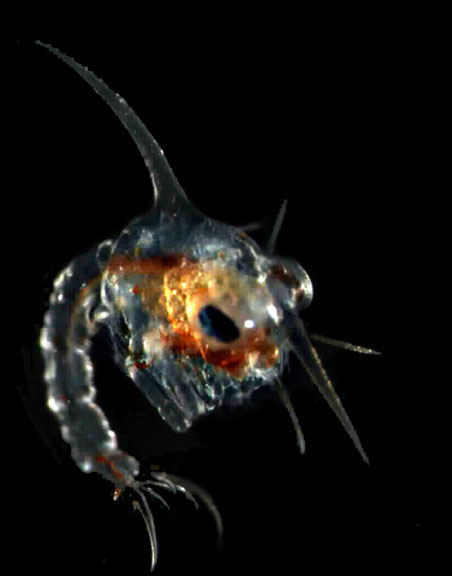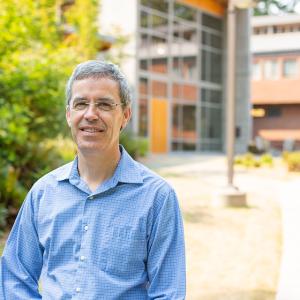Conservation, Restoration and the Challenge of Complex Life Histories
Archived video of the presentation
(note: due to a camera malfunction this recording does not include video of the classroom)
Loss of corals around the world is a well-publicized example of change in our oceans, but in the Salish Sea we have seen abalone nearly disappear while wasting syndrome has devastated seastar populations. At the same time, invasive European green crab populations threaten to overwhelm some local habitats. A feature common to corals, abalone, seastars, and green crabs is a life history that includes multiple life stages. Such complex life cycles create special challenges to studying, understanding, and managing invertebrate populations, yet research that addresses all life stages is critical in our efforts to protect and restore our marine environments.

About the Speaker

Brian Bingham is Director of Marine and Coastal Science at Western Washington University. His research focuses on marine invertebrate ecology with a recent emphasis on symbiosis between sea anemones and the photosynthetic algae they host. He has taught courses in invertebrate biology, experimental design and statistics, and science writing. He also directs the National Science Foundation Research Experience for Undergraduates program at the Shannon Point Marine Center.
Environmental Speaker Series
The Environmental Speaker Series is hosted by the College of the Environment at Western Washington University.
The Series is free and open to the public. Talks are held each Thursday at 4:30 pm in Academic Instructional Center West room 204 - AW-204. Talks will also be streamed via zoom. Register with the Alumni Association for the zoom link. Paid parking is available in lot C.
Learn more about the Environmental Speaker Series
Subscribe to the Email List